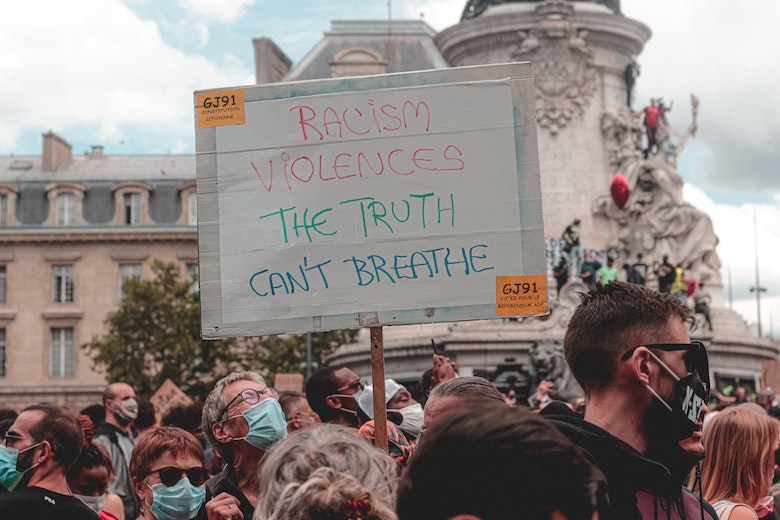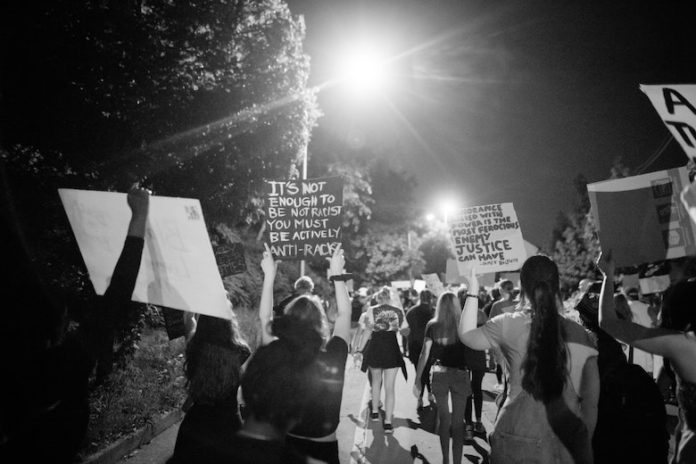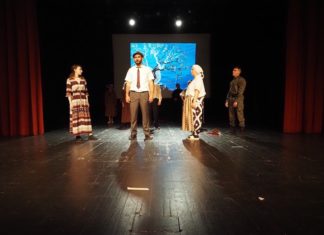Centuries of persecution, the genocide of World War II, marginalization and susceptibility to structural violence resulting from an unequal distribution of power and resources, and embedded in social or other structures due to, for example, class differences, elitism, nationalism, racism and sexism – are the basis for a thorough discussion of the social position of the Roma. The dominant portrayal of this people, especially through culture and art, as “exotic” is actually an aggravating factor for the development of quality social relations with the majority community.
The very arrival to and life in Europe also brought an ambivalence, which can – in a theoretical framework – be explained as the encounter of the Roma with a close and yet distant culture. Furthermore, as the existence and non-existence of interactive and integral relations with the majority population is visible, for example, through the creation of the myth of absolute “loneliness” and separation from the European environment and as a discourse by which the Roma become the border between worlds, history and continents, says dr. sc. Ljatif Demir, professor at the Department of Indology and Far Eastern Studies at the Faculty of Philosophy, University of Zagreb, and continues: “For example, for the Roma, the Balkans is an area of paradox because it is part of a world of strong opposites defined by the binary Balkan logic . This brings the Roma into inevitable instability and for them it is a world of war and peace, culture and nature, as well as the setting of an anthropological awareness that they are strangers and that they are never “on their own”.
The ethnic distance towards the Roma throughout history culminated in the genocide brought by the Nazi regime, but Professor Demir points out that attempts of ethnic cleansing of the Roma existed before their arrival to European soil, as well as after World War II. The ban on the use of their native language has been, for example, one of the most commonly used methods by various rulers throughout history, in an attempt to erase their national identity. Even today, it is believed that there is no standard in Romani language, language culture and communication culture, that this language is a diasystem of many dialects that were formed under the influence of the languages of countries where they resided or lived longer, explains Professor Demir, who teaches courses in Romani Language, Literature and Culture of the Roma and History of the Roma at the Graduate Studies of Romistics, at the Faculty of Philosophy.
It is a heavy blow to the Roma identity because they have only one Romani language, and that is Romani Ćhib. Unfortunately, this is also accepted by quasi-Roma scholars who only copy what the non-Roma have written about the Roma, about their culture and language. This further strengthens the ethnic distance towards the Roma because they do not realize that they are doing their people even greater harm than those who have been doing it for centuries. In this way, the Roma become strangers to themselves and fail to recognize themselves in such interpretations constructed by society.
Defining the Roma through superficial knowledge and the same approach was the basis for the prejudices taking root, which resulted in – as Demir describes – an ambivalent relationship in which horror and fascination are mixed. Wherever the Roma lived they were always perceived as foreigners, which Professor Demir also explains:
The image of the “Roma foreigner” is inextricably linked to the stereotype, encountering the problem of semantizing a reality that emerges from mythical, symbolic or pictorial thought. The folkloristic dichotomy of “our – theirs” is created and takes the form of the juxtaposition “people – non-people” or “people – animals”. The Roma were associated with a world of silence, darkness and death. A common motif in European folklore was the diabolical motif of the Roma foreigners whose genealogy is rooted in the “human – animal” juxtaposition, and which has a transcendental basis that brings man into opposition to the Roma devil or demon.

The strength of stereotypes towards the Roma even today – some eighty years after the Nazi crimes against this people – greatly hinders their integration into European societies. The majority of social communities do not understand or recognize that the Roma, as part of Europe, have played a really big role in shaping European history, culture, art and literature, says Ljatif Demir, citing examples of individuals who have strongly contributed to certain areas of culture, such as the jazz musician Django Reinhardt, or Mateo Maximoff, a Romani writer and evangelical pastor whose family emigrated to France during the Spanish Civil War and was later arrested and interned during World War II along with other refugees, and whose eleven books have been translated into fourteen world languages. Moreover, the Phralipe Theater, founded in the early second half of the 20th century in Macedonia, brought with it a new theatrical form in which actors followed their intuition and temperament, returning to the ritual foundations of historical Roma theater. Contemporary Romani artists, writers, doctors, professors and others contribute to the development of a modern European society, and Demir emphasizes that everyone should understand that the Roma are part of every social segment, and they as such make up the European nation, within which they “equally constructively participate in building a successful common space for all people in the European society.
For decades, the European Commission has been creating strategic frameworks for equality, inclusion and participation of the Roma as the largest minority in EU countries, emphasizing the need for better integration, and will continue to do so after 2020. A significant proportion of the Roma still live extremely marginalized in rural and urban areas and in very poor socio-economic conditions. The discrimination, social exclusion and segregation they face in practice means limited access to high-quality education, limited access to the labor market, low incomes and poor health conditions.
Despite their centuries-old sedentarity, the Roma have never been granted the status of equal citizens or real citizens of a state, or what is called a “droit de cité” in theory, which is the right to act, to enjoy privileges reserved for members of a city or state. Demir adds: The Roma as a social phenomenon still remain only within the framework of poverty, victims of the domination of the non-Roma, subordinate and unequal, despite even their indigenous way of life.
Social inequality, which is manifested in the unequal distribution of resources and due to differential preferences for access to social goods, according to which the Roma have always been at the bottom of the social ladder, is manifested today in terms of a lack of equality in access to opportunities. Allocation norms can also affect the distribution of rights and privileges, social power, access to public goods, credit and financial services, and other social goods and services.
In its reports on the position of the Roma in the EU, the European Commission also believes that much more needs to be done to integrate the Roma into societies, and that EU Member States and their national legislatures have a shared responsibility in this regard. The policy of multiculturalism should be insisted on, and in that sense integration should be encouraged as a form of social relations, and close and tolerant relations among social groups formed according to different criteria should be propagated in practice.
The Roma should be given the opportunity to say and show who they are and what they are like, that there are no words of hatred in their language and that they just want a different treatment in society, and that is the treatment of equal citizens, concludes Professor Demir. Long-term changes require a further awareness of diversity and the development of social relations in which trust, rather than fear, will prevail.












